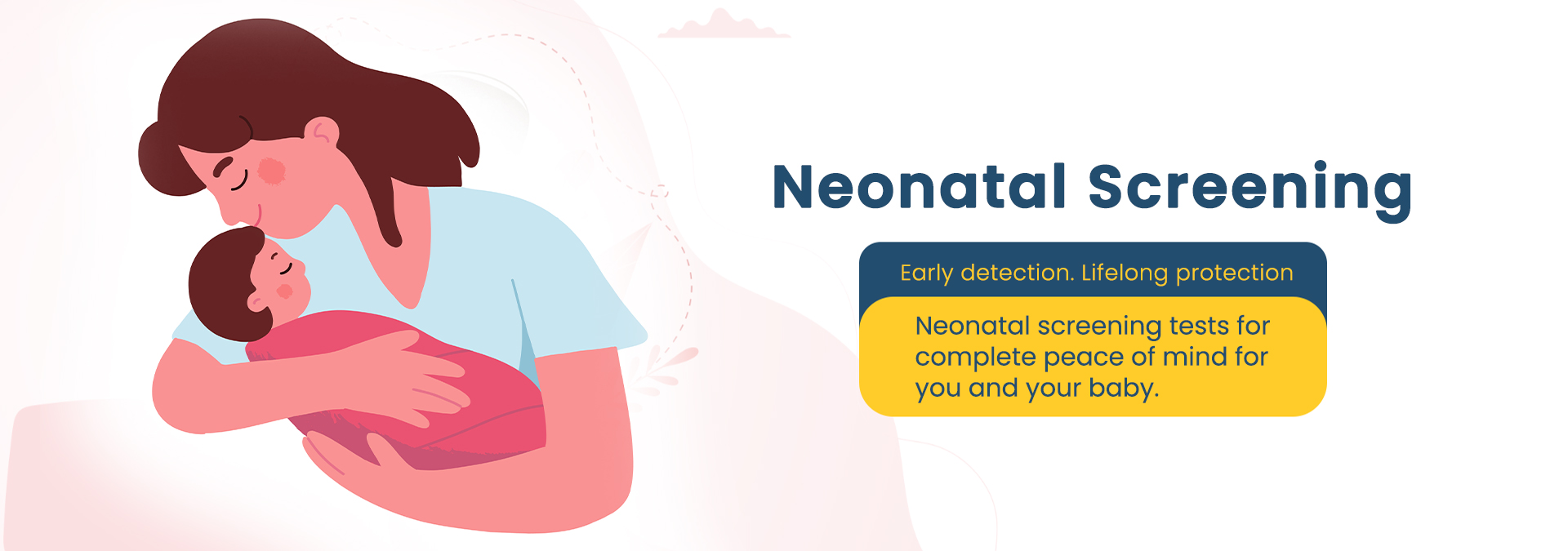Overview
Information on Neonatal Screening Test:
Neonatal screening tests are a crucial component of early infant healthcare, designed to detect potential disorders and conditions shortly after birth. By analysing blood samples, these tests enable the identification of genetic, metabolic, and hormonal disorders, allowing for timely intervention and treatment to ensure the best possible start in life for newborns.
Individuals who should undergo testing:
All newborns should undergo neonatal screening tests as a standard part of their healthcare. These tests are recommended for every baby, as they help identify potential health conditions that may not be apparent at birth, enabling early intervention and improved outcomes.
Assessment of Neonatal Screening Test outcomes:
Assessment of neonatal screening test outcomes involves careful evaluation of test results to identify any potential abnormalities or markers of concern.
Minimal Preparations required:
Minimal preparations are needed to undergo a neonatal screening test. It typically involves a simple blood sample taken from the baby's heel, often performed within the first few days of life. Parents may be advised to ensure their newborn is well-fed and comfortable during the procedure, helping to ensure an optimal sample for accurate testing.
What does the Neonatal Screening Test Detect?
Neonatal screening tests detect a range of disorders and conditions that may not be apparent at birth. These tests primarily focus on identifying genetic, metabolic, and hormonal disorders, including conditions like phenylketonuria (PKU), cystic fibrosis, sickle cell disease, congenital hypothyroidism, and many others.
Parameter
Frequently asked questions
Neonatal screening tests aim to detect potential disorders and conditions in newborns, allowing for early intervention and treatment to promote better health outcomes.
Typically, a few drops of blood are collected from the baby's heel using a lancet. The blood sample is then sent to a laboratory for analysis.
Neonatal screening tests are often mandated by law in many countries due to their significant health benefits. However, specific requirements may vary depending on the region.
While neonatal screening tests are highly accurate, there is a possibility of false-positive or false-negative results. Follow-up testing may be required to confirm any abnormal findings.
Neonatal screening tests cover a wide range of disorders, but they do not detect every possible condition. These tests primarily focus on conditions with available treatment options to improve outcomes.
In some cases, a repeat test may be recommended if the initial screening result is inconclusive or requires further investigation. This helps ensure accurate diagnosis and appropriate management.
Neonatal screening tests are generally safe and non-invasive, with minimal risk of complications or side effects. The blood sampling procedure may cause temporary discomfort to the baby.
If an abnormal result is obtained, further diagnostic testing will be conducted to confirm the diagnosis. Early intervention and treatment can then be initiated to manage the condition effectively.
Neonatal screening tests focus on specific disorders but cannot predict or detect all potential future health issues. Regular paediatric check-ups and monitoring are still necessary for overall health assessment.















